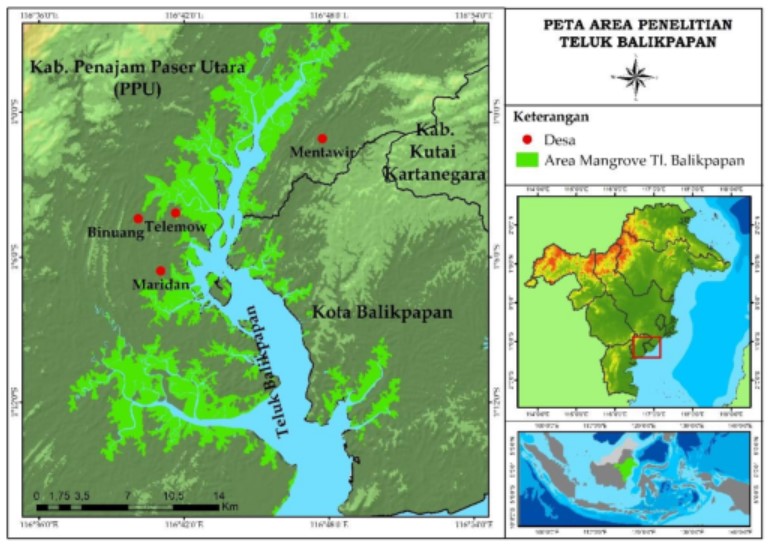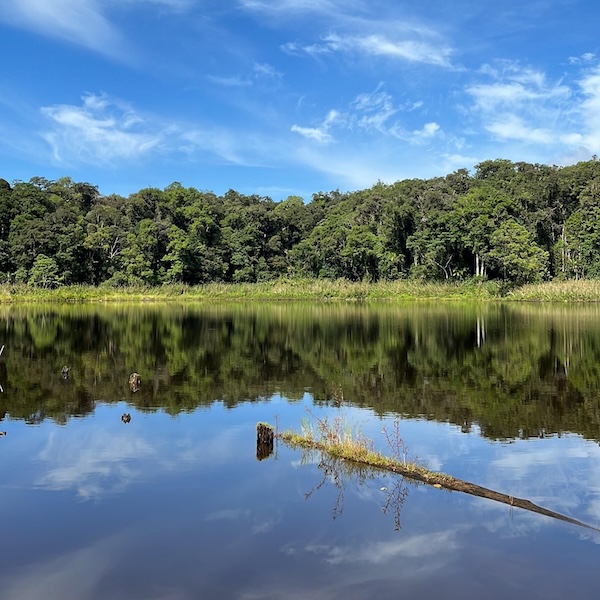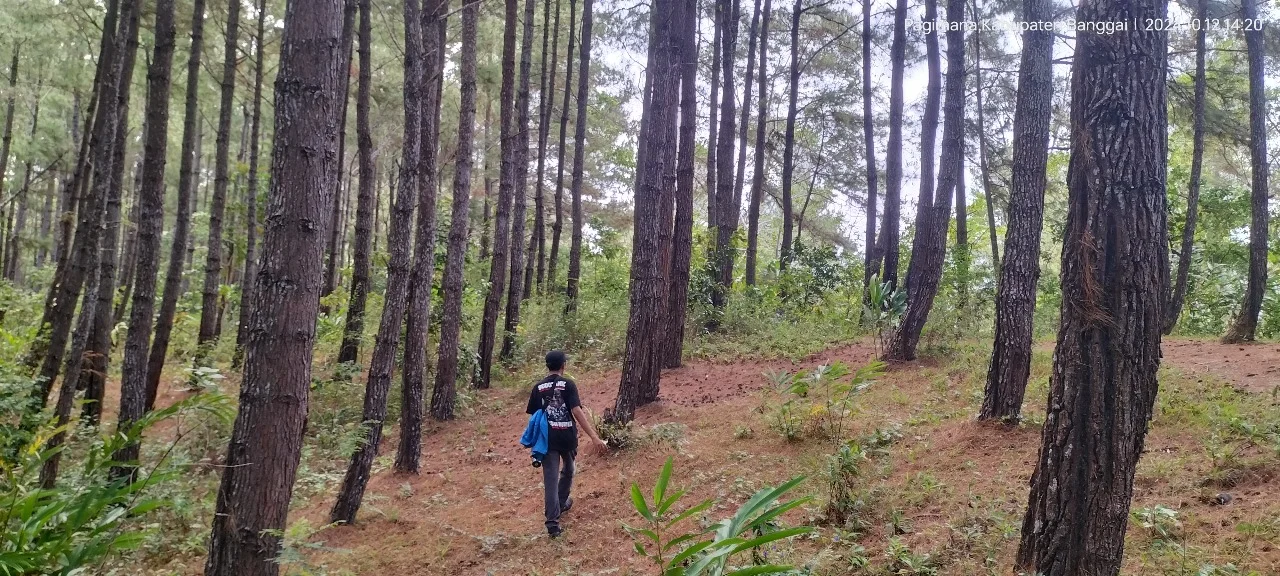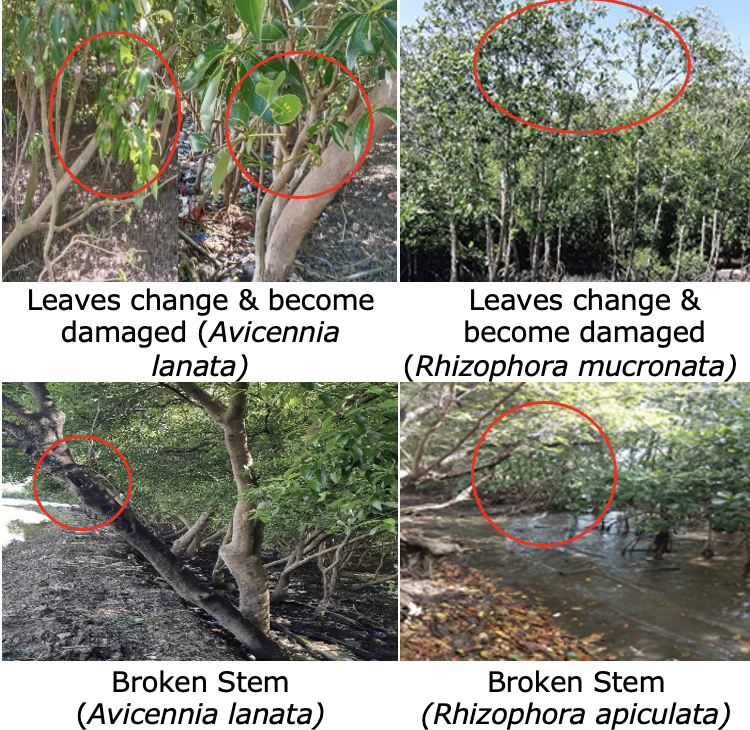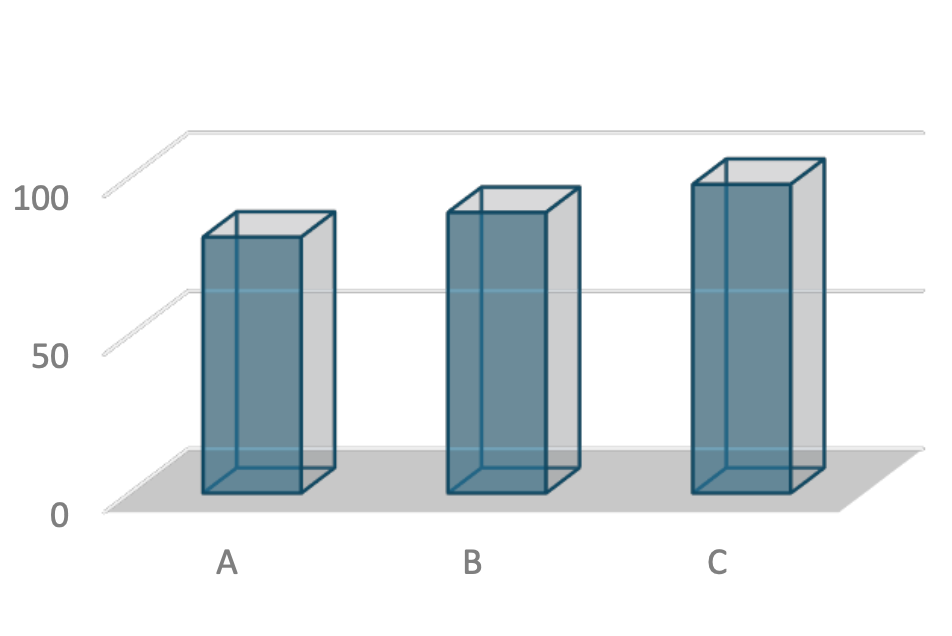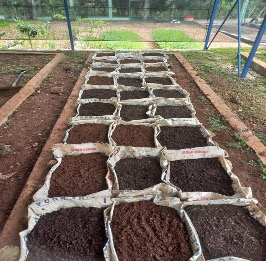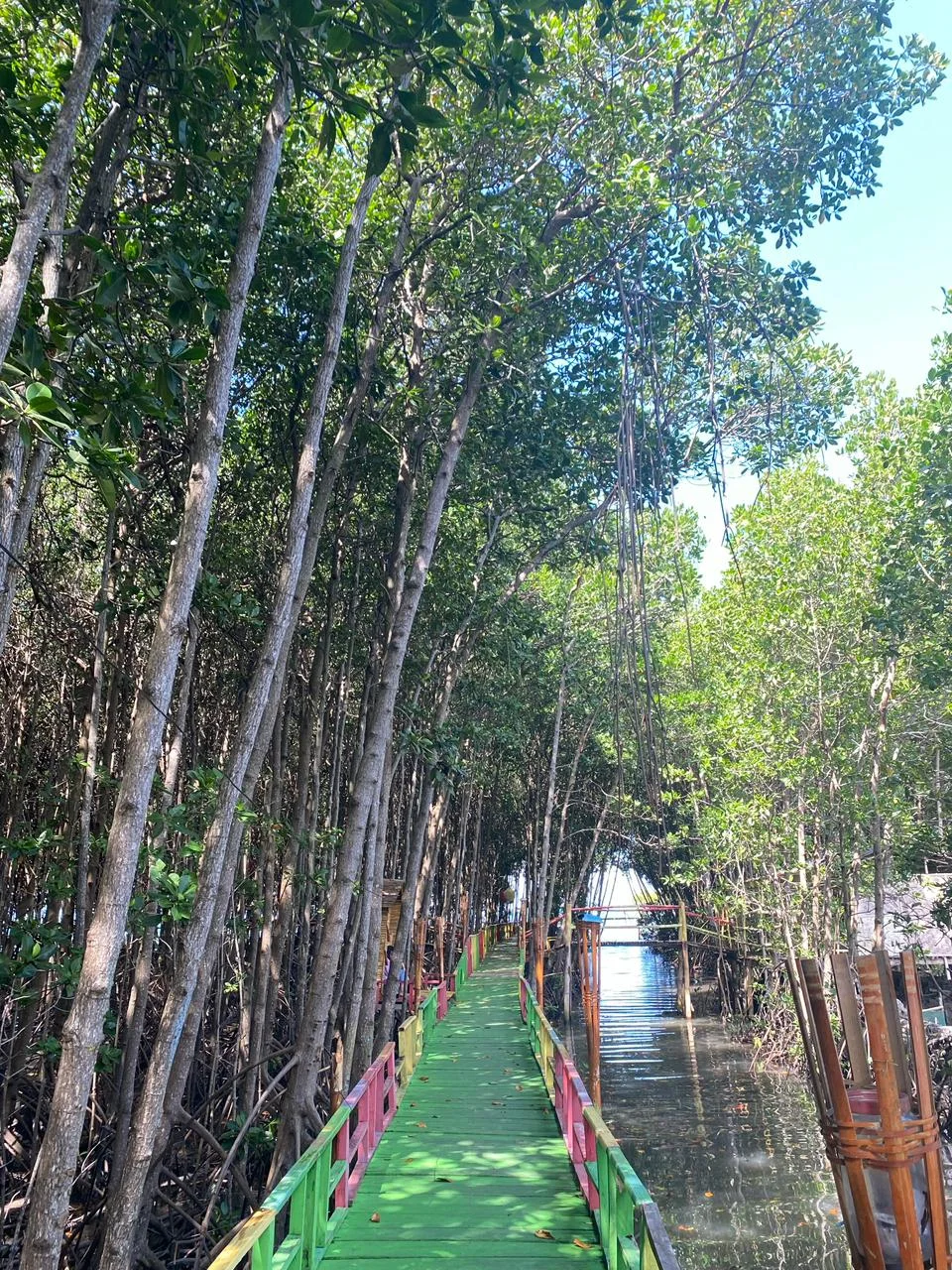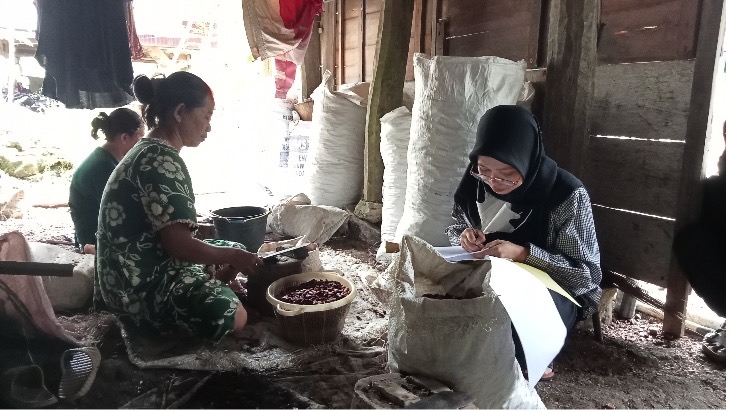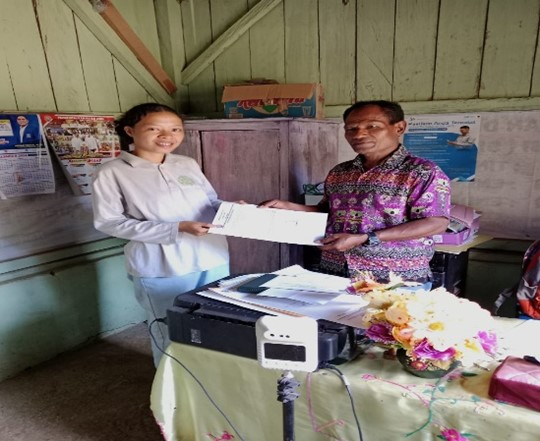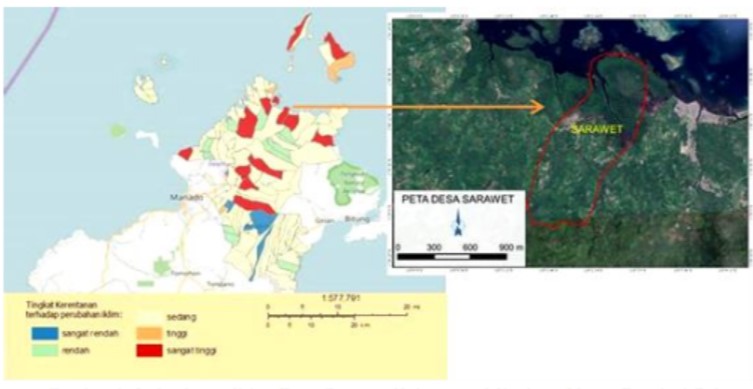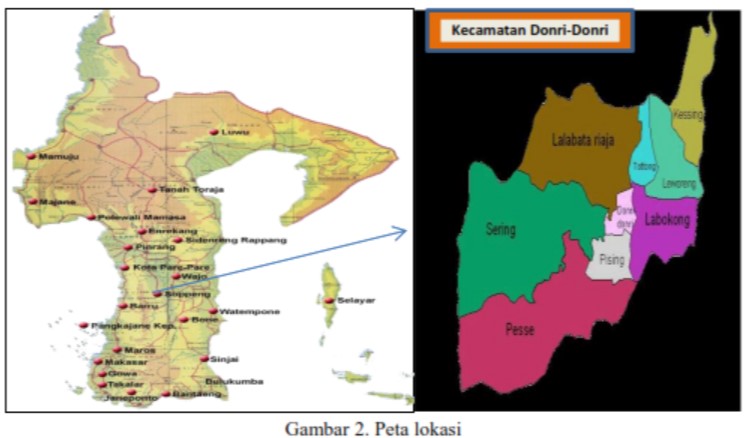Community Perceptions of Impacts of Ecotourism and Its Implications on Ecotourism Development in the Balikpapan Bay, East Kalimantan
Abstract
Understanding local community perceptions towards ecotourism is important since community has a crucial role in determining sustainable ecotourism. This research aimed to identify community perceptions towards impacts of ecotourism as well as to analyse the relationships between perception and ecotourism responsible behaviour. Other goal of this study was to analyse the relationship between ecotourism responsible behaviour and social factors. Data was collected in 4 villages adjacent to the Balikpapan bay, namely Maridan, Telemow, Binuang, and Mentawir. We used the quota technique to sample respondents. For each village, we took 40 respondents randomly. Data was then analysed using descriptive statistics, Spearman correlation, and Kruskal Wallis test. We found that community around the Balikpapan Bay thought that ecotourism was able to bring positive impacts for village and community. A Kruskal Wallis test revealed that there was no significant difference regarding perceptions among 4 villages. We found that there was a correlation between ecotourism responsible behaviour and gender. Implications of community’s perceptions to ecotourism development around the Balikpapan bay were then discussed.
Copyright (c) 2019 Jurnal Wasian

This work is licensed under a Creative Commons Attribution-NonCommercial 4.0 International License.
Copyright and License
All articles published in Wasian Journal are the property of the authors. By submitting an article to Wasian Journal, authors agree to the following terms:
-
Copyright Ownership: The author(s) retain copyright and full publishing rights without restrictions. Authors grant the journal the right to publish the work first and to distribute it as open access under a Creative Commons Attribution 4.0 International License (CC BY 4.0).
-
Licensing: Articles published in Wasian Journal are licensed under a Creative Commons Attribution 4.0 International License (CC BY 4.0). This license allows others to share, copy, and redistribute the material in any medium or format, and adapt, remix, transform, and build upon the material for any purpose, even commercially, provided that proper credit is given to the original author(s) and the source of the material

This work is licensed under a Creative Commons Attribution 4.0 International License. -
Author's Rights: Authors are permitted and encouraged to post their work online (e.g., in institutional repositories or on their website) prior to and during the submission process, as it can lead to productive exchanges and greater citation of published work.
-
Third-Party Content: If your article contains material (e.g., images, tables, or figures) for which you do not hold copyright, you must obtain permission from the copyright holder to use the material in your article. This permission must include the right for you to grant the journal the rights described above.
-
Reprints and Distribution: Authors have the right to distribute the final published version of their work (e.g., post it to an institutional repository or publish it in a book), provided that the original publication in Wasian Journal is acknowledged.
For the reader you are free to:
- Share — copy and redistribute the material in any medium or format for any purpose, even commercially.
- Adapt — remix, transform, and build upon the material for any purpose, even commercially.
- The licensor cannot revoke these freedoms as long as you follow the license terms.
Under the following terms:
- Attribution — You must give appropriate credit , provide a link to the license, and indicate if changes were made . You may do so in any reasonable manner, but not in any way that suggests the licensor endorses you or your use.
- No additional restrictions — You may not apply legal terms or technological measures that legally restrict others from doing anything the license permits.
Notices:
You do not have to comply with the license for elements of the material in the public domain or where your use is permitted by an applicable exception or limitation .
No warranties are given. The license may not give you all of the permissions necessary for your intended use. For example, other rights such as publicity, privacy, or moral rightsmay limit how you use the material.
Most read articles by the same author(s)
- Ulfah Karmila Sari, Bina Swasta Sitepu, Mukhlisi Mukhlisi, Puji Mulyanto, Floristic Composition and Soil Characteristics in Muara Kaman Sedulang Nature Reserve, East Kalimantan , Jurnal Wasian: Vol. 8 No. 1 (2021): June

